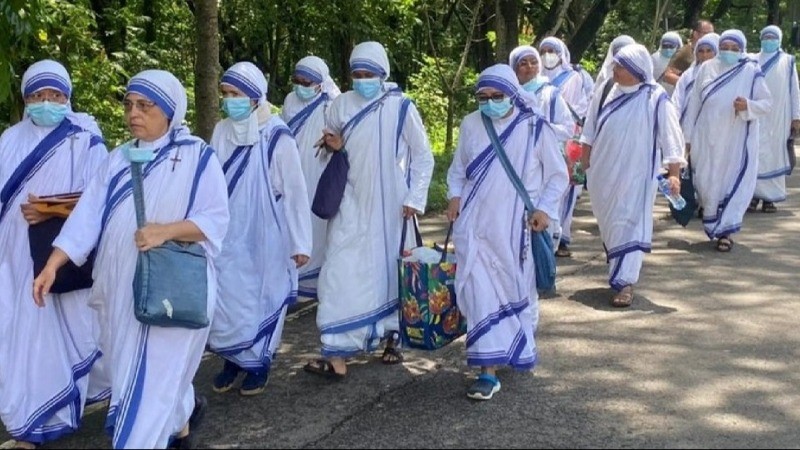
Managua: In a significant move, Nicaragua's government has issued an ultimatum to the country's remaining Catholic nuns, demanding that they leave the nation by the end of December. This decision comes as part of the government's continued crackdown on the Catholic Church, which has faced increasing persecution under the authoritarian regime of President Daniel Ortega and his wife, Vice President Rosario Murillo.
The expulsion order follows the government's previous actions, including the forced removal of several religious orders from the country, such as the Missionaries of Charity, the congregation founded by Mother Teresa. These nuns had been serving the poor in Nicaragua since 1988 before being expelled in 2022 under accusations of spreading politically motivated falsehoods. Other religious groups have faced similar treatment, including the expulsion of the apostolic nuncio and the imprisonment of bishops.
The crackdown has been viewed as part of the government's broader effort to silence opposition, with the Catholic Church frequently voicing its support for democracy and human rights, a stance that has made it a target for Ortega's regime. The United Nations High Commissioner for Human Rights has previously called for an end to the repression, but the government has ignored these pleas.
The expulsion of religious communities, particularly nuns, has been a consistent strategy for the Ortega government in its ongoing persecution of the Church. With approximately 58.5% of Nicaragua's population being Catholic, this action affects a significant portion of the country’s citizens. The Missionaries of Charity, for example, were accused of money laundering, terrorism financing, and even promoting the spread of weapons of mass destruction—a claim widely criticized as unfounded.
This latest move against religious sisters follows the arrest and expulsion of Bishop Carlos Enrique Herrera Gutiérrez in November 2023 and the ongoing ban on Catholic priests ministering to the sick in public hospitals. The government’s actions are part of a wider effort to stifle the Church’s influence and support for democratic principles.
Since 2018, over 240 clergy members have either been exiled or expelled, and many continue to face restrictions in their religious activities. The situation highlights the increasing repression of religious freedoms in Nicaragua under Ortega’s rule.